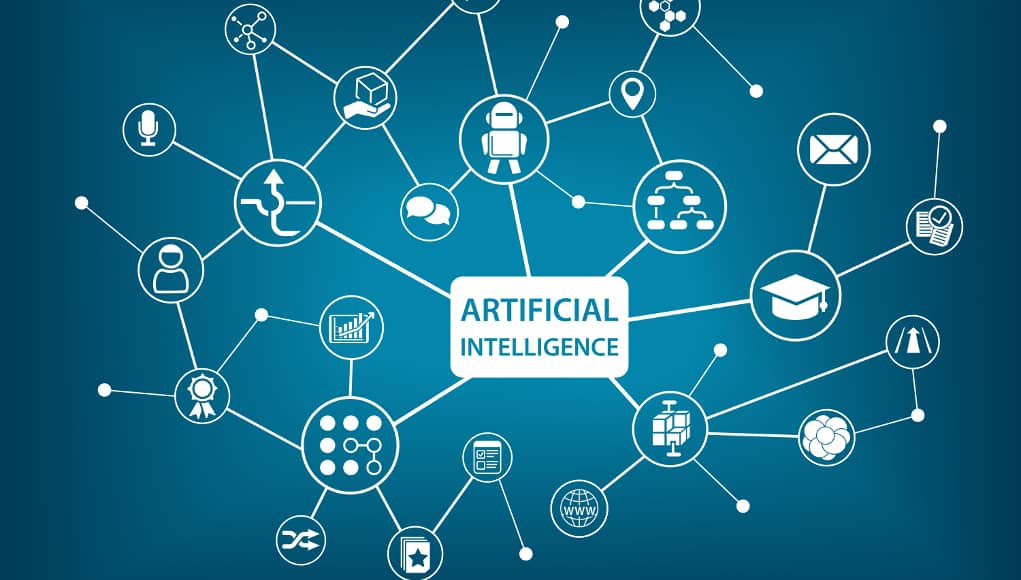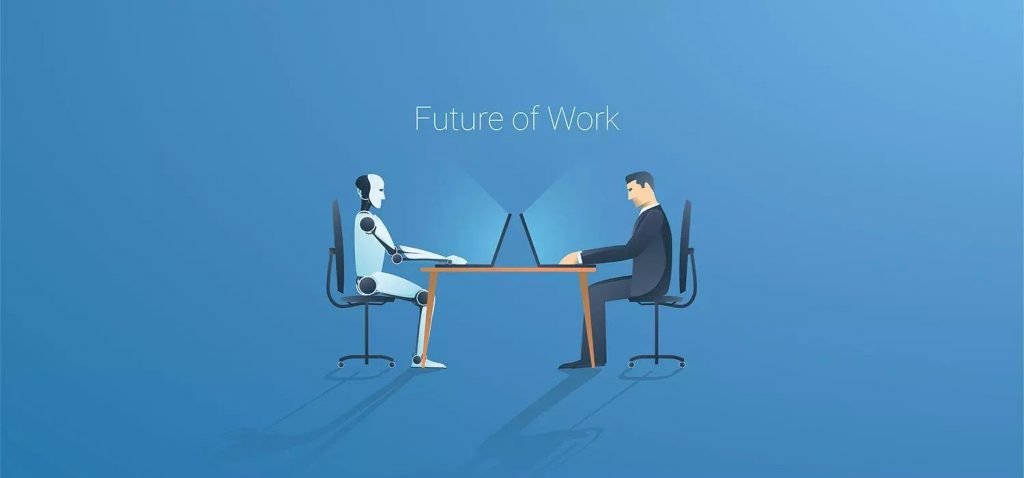With the future of work hotly debated, AI has been both lauded and lambasted as a one-dimensional answer to everything from job losses to market efficiencies. While for many such analysis is speculative at best, there is no doubt that artificial intelligence (AI) will inevitably reshape our future workplace, since there are already many places where AI has created great results.
Future AI trends and the future of work in AI are exciting. We’ve all heard stories about automated and mechanical systems being assigned duties that, until recently, we regarded as exclusively human: identifying medical diagnoses, making legal documents, designing buildings, and even creating music.

Survey and Analysis
In a recent poll, the median prediction among prominent computer scientists was that this technology would be available within 45 years.
Importantly, that poll also revealed a lot of disagreement. If we look at artificial intelligence, or AI, in a narrow sense, many people think that it will arrive much faster than other technologies. Many believe that it will take longer for high-level machine intelligence to emerge.
The recent literature on the future of AI is replete with contrasting viewpoints, ranging from popular commentary to more academic analysis.
Despite these varied views, one thing is certain: If we believe an unfavorable result of this type is probable, it should demand our attention. Continued progress in these technologies might have dramatic consequences in the future of work – it would exacerbate existing patterns of inequality, weaken the power of employment to bring people together socially, and weaken a source of purpose and pleasure for many individuals.

Future of work: What will it constitute?
On this question, there was a clear difference of opinion. First camp felt that humans’ new freedom would allow them to pursue exploration, self-improvement, volunteering, or whatever else they choose as a source of enjoyment.
Proponents of this viewpoint frequently backed some form of basic income (UBI). They also conceded that our current educational system, which typically leaves individuals unprepared to create their own lives free of economic limitations.
The second camp, which was met in person, felt differently: conventional employment was still important. To them, UBI is a sign of shame – it implies that most individuals won’t be able to contribute anything to society. They can be raised, housed, and entertained – most often by machines – but otherwise left to their own devices.
People will be compelled to provide interpersonal services that can only be provided by people. Therapeutic, tutoring, life coaching, and community-building are just a few of the many treatments that may help you overcome these challenges. That is, if we can no longer provide routine physical labor and mental effort, at least our humanity can still be provided. We will need to be a lot more successful at being human if we are going to get real value out of these kinds of projects. This is an area where our educational system and scientific research foundation is notoriously poor.
Below we introduce 6 important AI visions for the future of work.
1. Common economic advantage
The economic benefits of technological progress are almost universal. Because AI has considerably improved productivity, the global economy is now ten times larger. Humans can accomplish more and achieve more by participating in this prosperity. Various measures, from establishing a worldwide tax system to enhancing unemployment insurance, could be taken to achieve this goal.

2. Companies get realigned
Large businesses concentrate on advancing AI for the benefit of humanity, instead of accumulating excessive economic or political power. Changing corporate ownership structures and updating antitrust laws may all be used to expand competition.
3. Flexible labor markets
People will be able to explore and take on different responsibilities thanks to their creativity and hands-on assistance. People adapt to new technology and take up employment in newly formed occupations. Policies would focus on enhancing educational and retraining possibilities, as well as strengthening social safety nets for those who might otherwise be worse off due to automation.

4. Artificial Intelligence focused on the needs of people
Excessive automation is rejected by society. Business leaders, computer scientists, and officials who are responsible for their future of work prefer to create technologies that increase demand for employees rather than cut it. Incentives to develop human-centric AI would be strengthened and automation taxed where necessary.
5. Accomplishing tasks and fulfilling jobs
New employment is more gratifying than ones that have come before. Humans, on the other hand, are more adaptable and creative, with a wider range of job options accessible to them as they become increasingly specialized.
Unsafe and monotonous tasks are handled by machines while people move into more productive, rewarding, and flexible employment that requires greater human interaction. Strengthening labor unions and empowering workers to serve on corporate boards are two ways to ensure that the corporation is on the flow and the future of work is guaranteed.
6. Human flourishing and civic empowerment
In a world with less need to work and basic needs met by UBI, the pursuit of well-being increasingly comes from the fulfillment of essential unpaid duties. People may do anything they like, including exploration, self-improvement, and volunteering. More social interaction would be encouraged.
The goal is for this paper to kick off a broader conversation about the kind of future we want and the challenges we’ll need to overcome in order to get there. With technology progressing at breakneck speed, the future will appear very different for our children and grandchildren. More debate, study, and policy engagement are required on these issues – they have become too crucial for us to ignore.

To Wrap Up
One of the most difficult obstacles to action is that, at present, there is no agreement on what the future should be sought after, since little or no discussion occurs regarding what might be desired. The lack of foresight is a concern because, if high-level machine intelligence does become reality, we may rapidly confront overwhelming technological transformation and intractable economic forces. This would be a missed opportunity.
The points mentioned above regarding the future of work are representative paths for humanity. However, none of them is undeniably achievable or desirable. While there are elements of critical agreement and consensus among the many scenarios, there are also notable conflicts.



